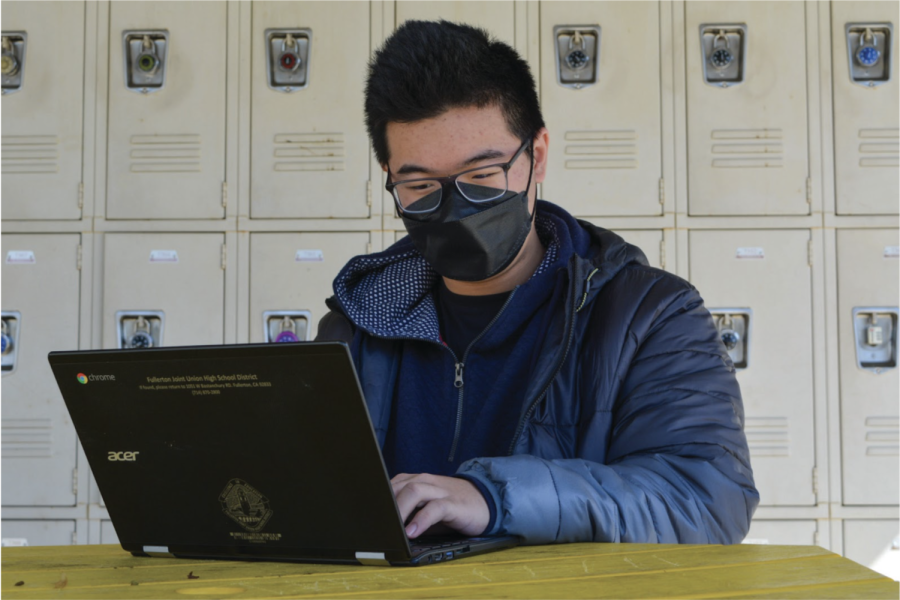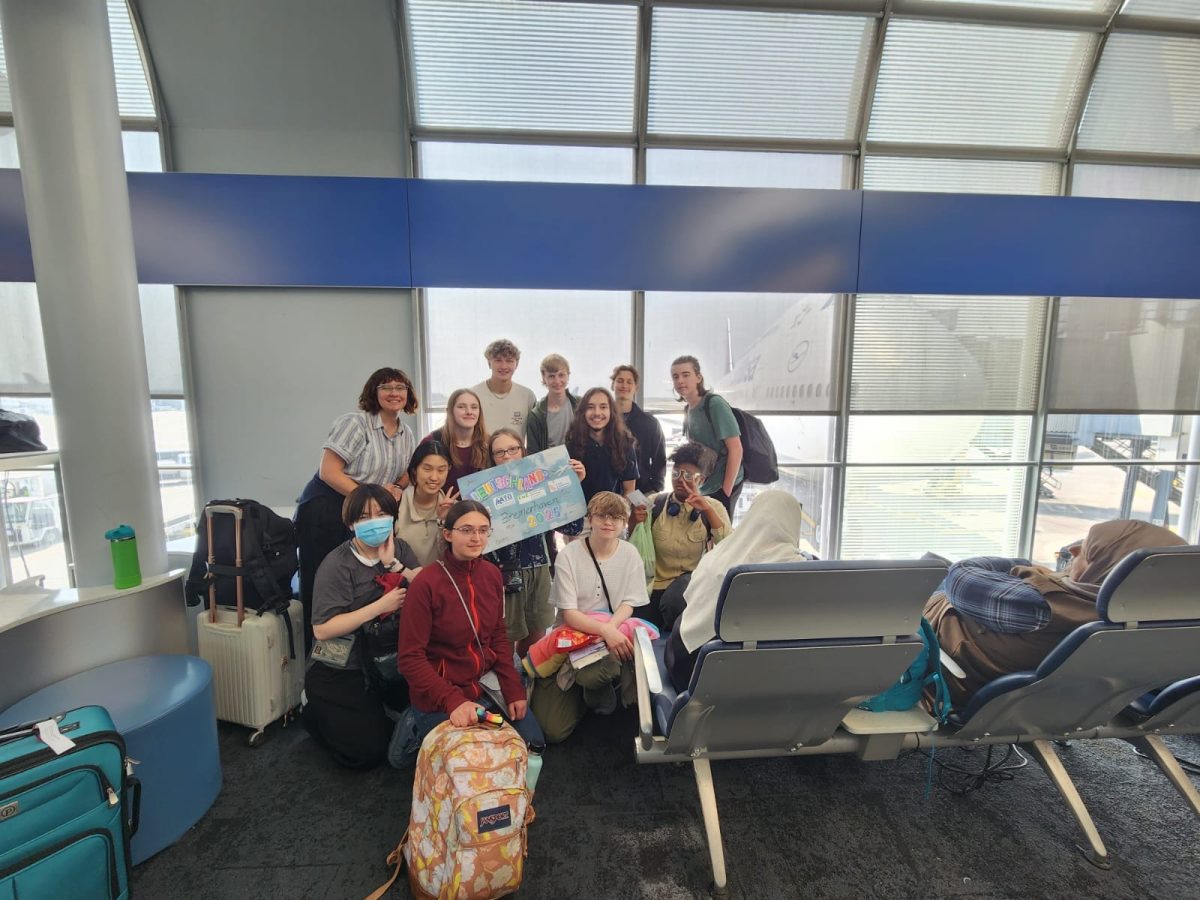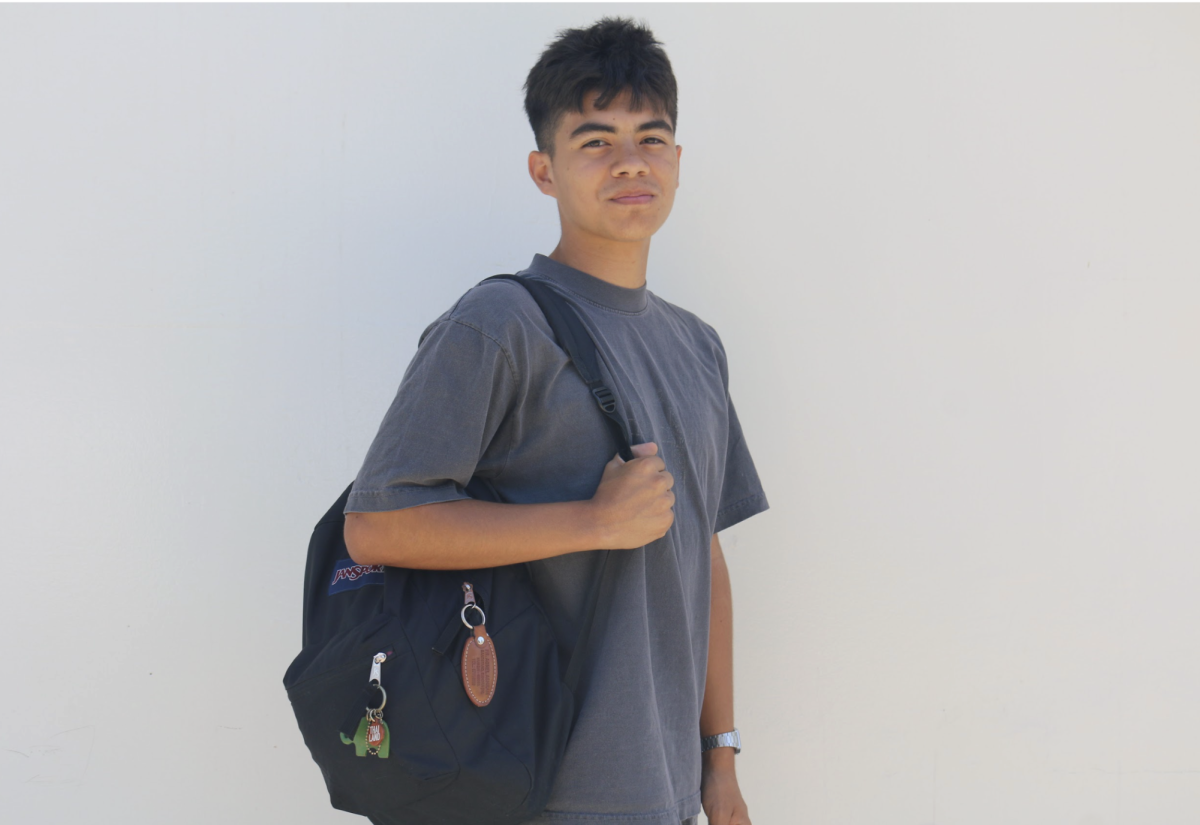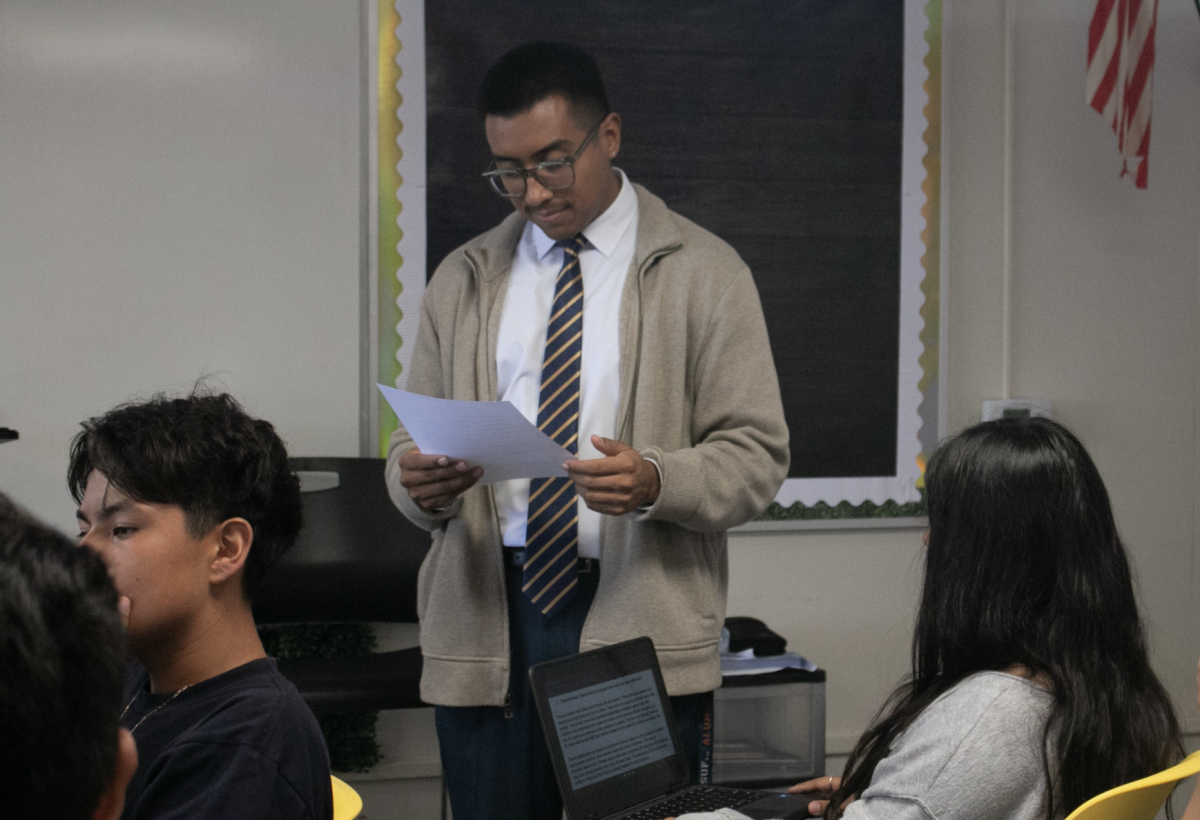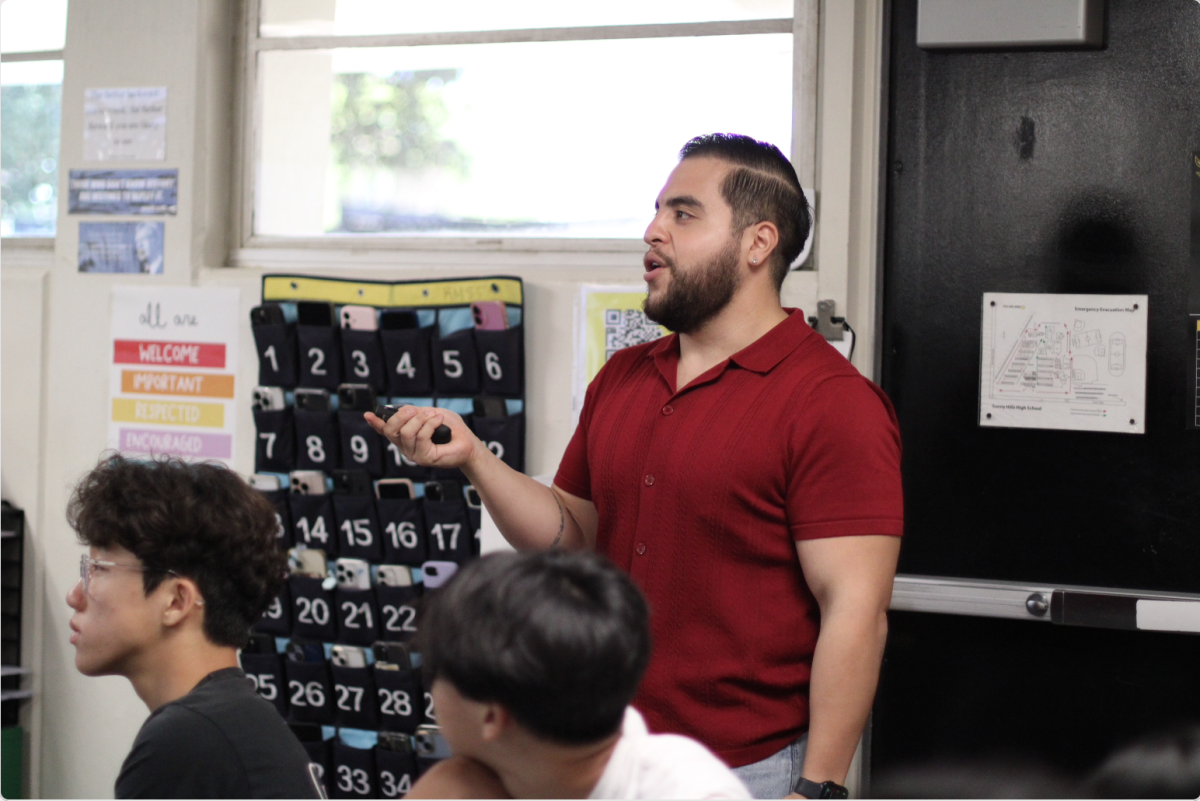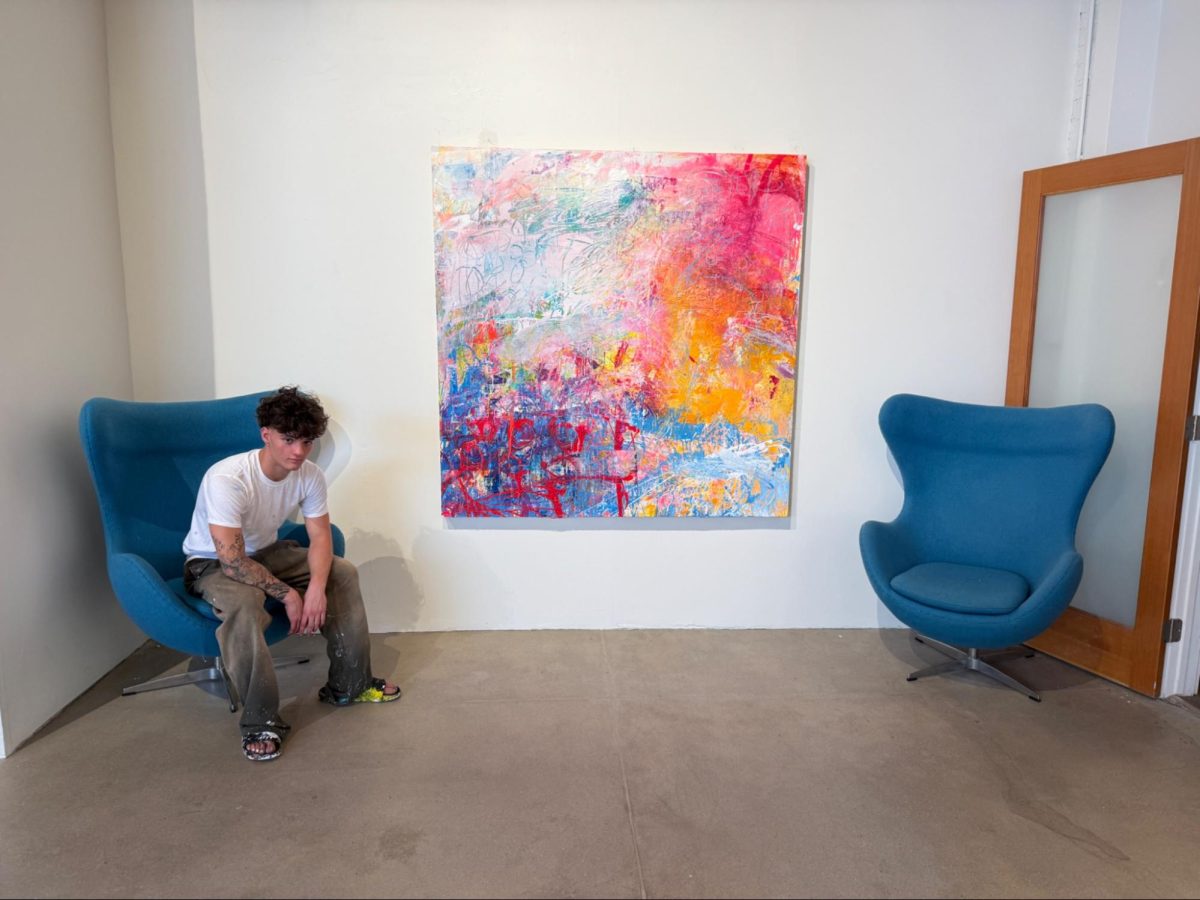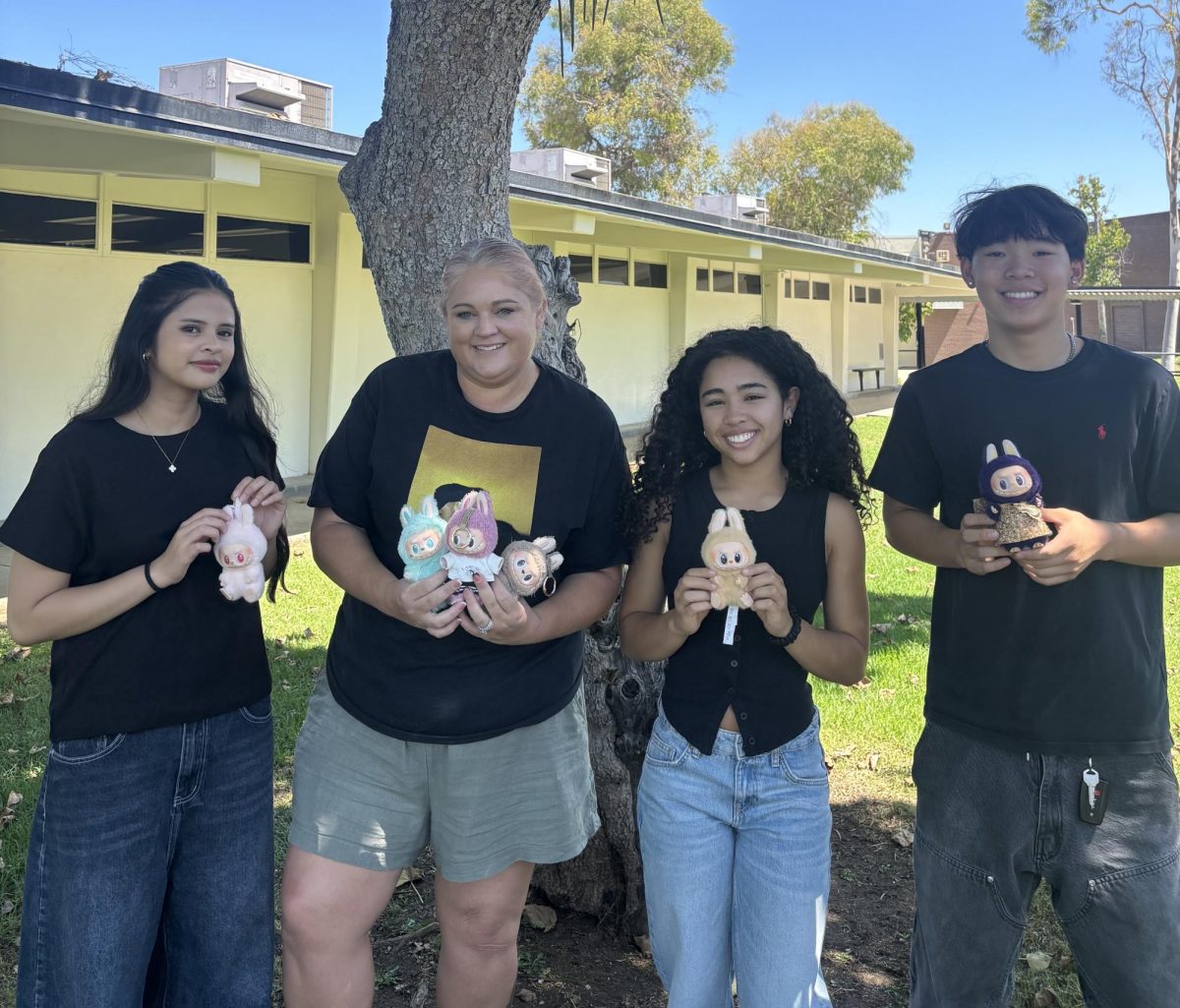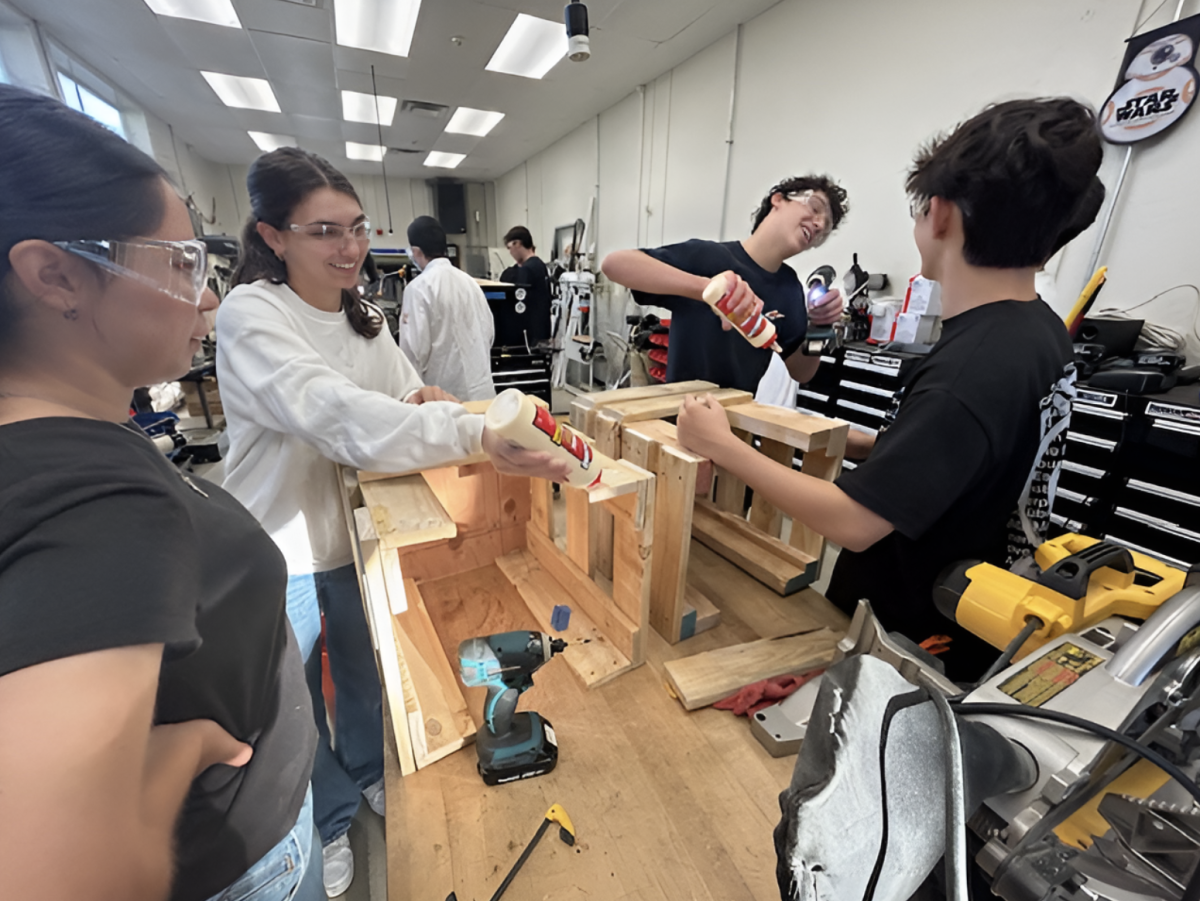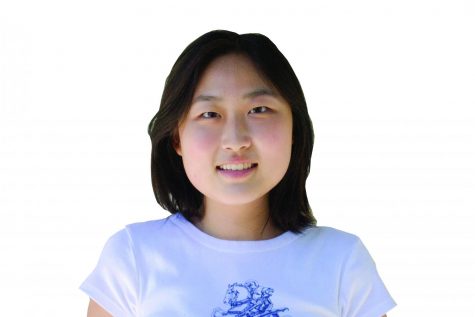“Hallo mijn naam is Aidan.”
Translated to English from Dutch, this would read, “Hello, my name is Aidan.”
Senior Aidan Wong said he first started learning this European language in March 2019 when he was a freshman.
After that in the summer of 2020 before his junior year, he decided to pick up French.
More than six months later in January 2021, he moved on to Swedish and Norwegian. Six months later, he took on Danish and near the end of 2021 as a senior, he wanted to speak Finnish.
All this was made possible because of a 2012 app called Duolingo.
“I was raised speaking Cantonese in my household and started learning German at [Sunny Hills], which eventually took me to Dutch,” said Wong, who’s most fluent in Dutch and German. “I remember thinking, ‘OK, what would I want to learn next?’ and Dutch was pretty similar to German, so it came pretty quickly to me.”
Duolingo ended up being his choice because of its free platform and its well-known recognition, he said. In addition, Wong was able to practice Dutch outside of Duolingo as he believes Dutch to be very similar to English and German.
“Of course, everything’s easy at the start because it’s just like the basic words and translating them,” Wong said. “Of course it starts to get difficult later on, but I always say that it’s easy for me as I speak English and learn German at school, [both aiding] in my learning of Dutch.”
Mastering Dutch and German on the Duolingo platform took Wong about a year each during the pandemic, but learning how to converse took an additional six months, he said. During that time, the senior took upon himself to engage in the cultural aspect by listening to Dutch music and watching European television programs, like “Eurovision.”
In addition to this, Wong ended up taking his multilingual training to the next level by writing in Dutch his International Baccalaureate [IB] extended essay, a mandatory requirement for IB seniors.
“It was always in the back of my mind, like when I knew about my extended essay requirement… I wanted to do something outside of the box, so I chose to write it in Dutch,” said Wong, who hopes to pursue his interest in the Dutch language in college.
However, it became very different for the senior to find an adviser who was fluent in Dutch. His Theory of Knowledge [TOK] teacher, Scott Rosenkranz, ultimately became his adviser for his IB extended essay.
Though Rosenkranz has no background in Dutch, the English teacher has experience in advising students who want to write their IB Extended Essay in a second language.
“I didn’t know any teachers on campus that speak Dutch, so I went with my TOK teacher Mr.Rosenkranz, who helped me with translating,” the senior said. “One of the biggest challenges in learning languages was not having a conversation partner who can check my grammar, but I think I combatted that by reading slowly. So it was a lot individually, but I expected that.”
Rosenkranz praised Wong for his ability to overcome the difficulties that came along with the unique aspect of writing the essay in a foreign language.
“My reaction was surprised, [since] it is rare that students go for this topic in their Extended Essay as it requires academic writing in a new language,” he said. “I was concerned about the ability to find good sources on his topic, especially due to the lack of resources stemming from COVID restrictions. He took a risk, but has a strong work ethic and character.”
Duolingo makes it easy for students to learn new languages through diverse learning features like podcasts and virtual events. However, it doesn’t guarantee that students would become 100% fluent in a new language.
Despite his vast knowledge of European languages, the senior doesn’t know how he plans to use it for a future career as he hopes to major in math in whichever college he gets accepted to.
“I hope to travel to those countries, but I don’t know when,” Wong said. “For now, my goal is to be able to understand these languages because I find them interesting.”



